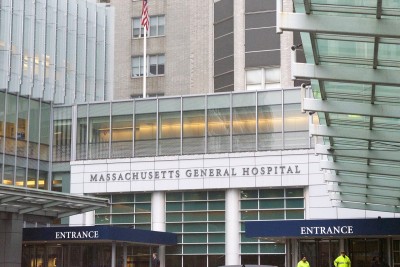
To increase access to health insurance across the Commonwealth, the Boston-based Pioneer Institute analyzed the impact of funds totaling at least $324 million that will be provided by the Massachusetts and federal governments over the next 10 years, in a report released Wednesday.
The funds will be distributed across Massachusetts through MassHealth, a part of the federal healthcare program Medicaid, according to the report. Medicaid, which falls under the Affordable Care Act, is funded by a tax called the Health Insurance Provider Fee.
“Despite the intention behind the HIPF, the fee does not collect money from the large insurers profiting from Medicaid expansion, but instead from states and taxpayers already facing the costly burden of Medicaid,” the report stated.
MassHealth used approximately $15 billion of last year’s $38 billion state budget making the program “completely unsustainable in the long run,” said Joshua Archambault, an author of the report.
“[MassHealth] has crowded out spending for every other priority,” Archambault said. “The ACA has just exacerbated other issues within the Medicaid program because the ACA only expanded a little bit in Massachusetts.”
Archambault said MassHealth, which serves about a quarter of the Commonwealth’s population, has been implemented on the wrong demographic and has overshadowed other priorities such as education, public safety and transportation.
For example, Archambult said, funds that could have been allocated elsewhere have gone to nursing home care for the elderly, which absorbs a majority of the MassHealth budget. He said the key to decreasing costs is to improve the private insurance market.
“The state, along with other states, needs to get a lot better in checking eligibility,” he said. “There’s been lots of research showing that when you expand Medicaid, people drop their private coverage and go on the government-funded insurance.”
MassHealth spokesperson Michelle Hillman wrote in an email that MassHealth is beneficial in aiding “the state’s most vulnerable” and that the Commonwealth will strive to improve the program’s fiscal conditions.
“Massachusetts leads the nation with the highest percentage of residents who have health insurance,” Hillman wrote. “We are focused on restructuring MassHealth in a way that both improves the quality and coordination of care and creates a more fiscally sustainable program for the Commonwealth.”
Several Boston residents said they still view MassHealth favorably, despite how much of the state budget the program takes up.
Melissa Seiler, 41, of Dorchester, said she has gotten the medical care she could not afford to pay for under MassHealth.
“MassHealth helps people when they can’t afford it,” she said. “If we’re going to help those that can’t afford something, then I’m okay with it. It all depends on how they handle [the program].”
Theresa Brown, 23, of Brighton, said MassHealth provides more money to people who really need medical services. She added that it would be effective as long as it reaches the right population.
“The Medicaid program is effective for individuals that are receiving Medicaid,” she said. “[T]here’s some room for improvement, especially regarding teeth. I feel that people should be able to get their teeth reshaped and not have to pay a lot of money for it.”
Rebecca Singer, 26, of Brighton, said Massachusetts is in need of a more accessible healthcare system.
“There are people in Massachusetts and a lot of poor people who really need those services,” she said. “I wish it wasn’t such a bureaucracy. I think that healthcare should be easier to get. It’s all messed up, there’s a lot of paperwork.”




